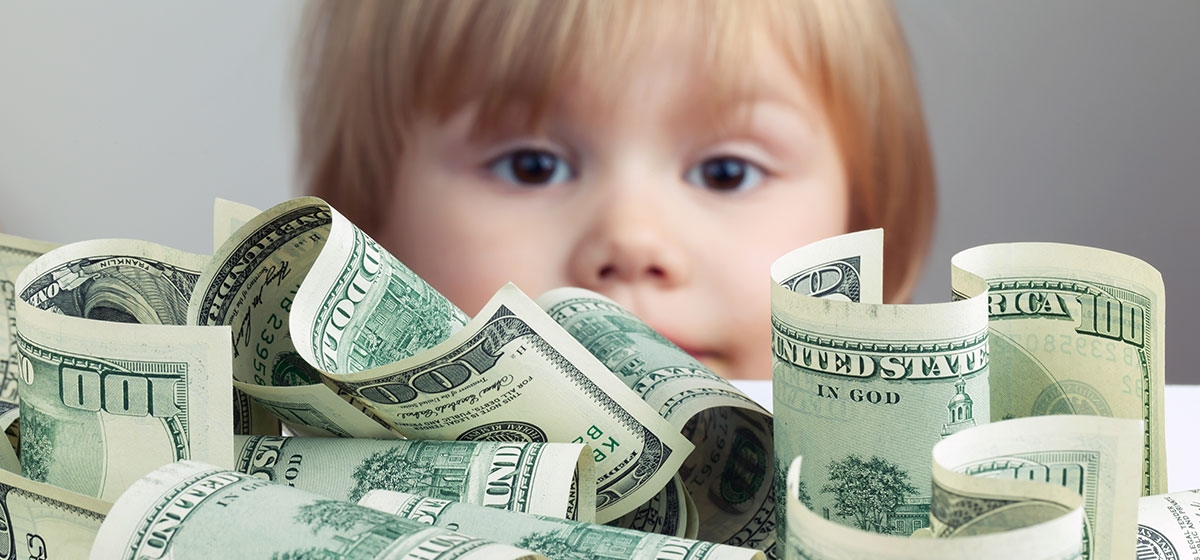Poor Parenting Saps the Wealthy

We are talking in a roundabout way that has taken us back to first principles about the human maturation process and how it interacts with the fear of affluent parents that money will ruin their children. There are several characteristic ways that affluent families go wrong, launching the shirtsleeves-to-shirtsleeves phenomenon that, as Jay Hughes has reminded us, marks the peculiar trajectory such families tend to follow in virtually every society. E.g.: “Rice paddies-to-rice paddies;” “Potato fields-to-potato fields;” “Stalls to stars to stalls;” “Three generations atween a clog and clog.”
Let’s look at the fraught transition from G1 to G2, where G1 is the wealth-creating generation and G2 is their children. For this transition to be successful, families must overcome several formidable hurdles, and, unfortunately, the odds of surmounting them are small.
Consider, first, a phenomenon that afflicts all families: regression toward the mean. To take a simple example, if the parents are well below average in their abilities, their children are highly likely to be abler than the parents, as the abilities of the children regress upward toward the mean ability level of the population.
But it also works the other way around: if the parents have well above-average abilities, their children are likely to be less able, as the kids regress downward toward the mean ability level of the population. It’s not impossible for very bright parents to have even brighter children, but it’s a several-standard-deviation outcome if you just do the math.
Unfortunately, the regression phenomenon is magnified by the typical child-rearing practices of wealth-producing G1s. G1s who managed to build large fortunes in one lifetime didn’t do it by hanging out at home with the kids. They were at the office—or the factory or the job site—before dawn and by the time they got home the kids were long in bed. The typical result is that attention- and affection-starved G2s come to substitute money for the lack of parental attention. They feel “entitled” to that money, given the emotionally arid lives they’ve lived, and entitled is what they become.
Even when G2s are as able as their wealth-producing parents, it’s very rare for them to build on the family fortune, rather than dissipating it. (His many other lapses notwithstanding, Donald Trump is that rare rich kid who outdid his wealth-producing dad. Andrew Mellon is another example.) More typically, able members of subsequent generations tend make their mark in some activity other than producing large fortunes.
Consider James Laughlin, great-grandson of James H. Laughlin, founder of Jones & Laughlin Steel Co. (which happened to be a legal client of mine back in the days when I actually worked for a living). The younger Laughlin became a notable poet and was the founder of the renowned modernist publishing house, New Directions. In his spare time he founded the Alta ski area in Utah. James, like many able descendants of wealth, left his family’s financial capital diminished, but he also left its intellectual capital much enhanced.
The diminishment from G1 to G2 isn’t inevitable, of course. Sometimes a G1 parent will be a strong enough person to make up for the usually absent wealth-producing spouse. Historically, this has been the mother, of course. But even a strong mother will typically succeed better with daughters than with sons, as the absent male role model is very difficult to supplant. This is one of the several ways in which the dynamics of wealthy families resemble those of very poor families more than they do those of middle class families.
In any event, when the G1 to G2 transition goes poorly, imagine what sort of parents the needy G2s make. Not only does the typical G2 generation spend down the financial capital, but they also tend to make poor parents, condemning the hapless G3s to mediocrity. By the time the G3s have gone to their reward, both the family’s financial capital and its emotional and intellectual capital are typically long gone: shirtsleeves-to-shirtsleeves, poof.
Which brings us back to my main point: it’s not money that ruins kids—its poor parenting. I’ve never encountered a well-brought up child whose life was stunted by learning that his or her family had lots of money. On the other hand, I’ve known dozens and dozens of kids whose lives were stunted by poor parenting whether they were rich, poor or middle class.
We all know the central characteristic of the typical trust fund babies: lives spent selfishly spending the family’s money on themselves. But beginning around the turn of the twenty-first century, and accelerating rapidly after the Financial Crisis, I began to encounter a new, improved version of the trust fund baby, and one that seems, at first glance, almost the opposite of the traditional version.
These are rich kids who grow up not selfishly spending money on themselves, but who nonetheless spend the family’s money down in ways that represent a serious worry to their parents—and, perhaps, to society at large. We’ll take a look at this interesting phenomenon next week.
Next up: The Talk, Part IV





